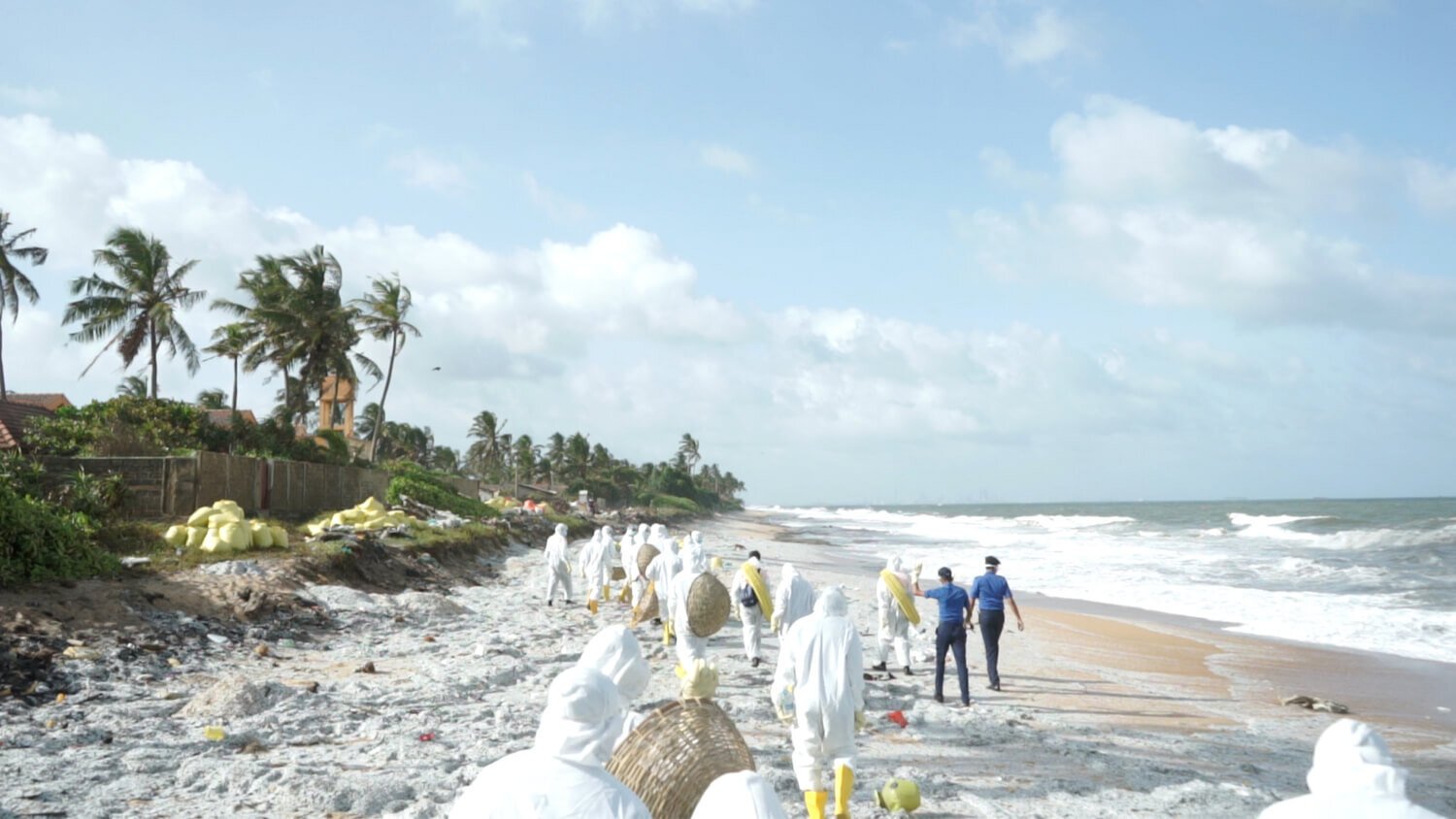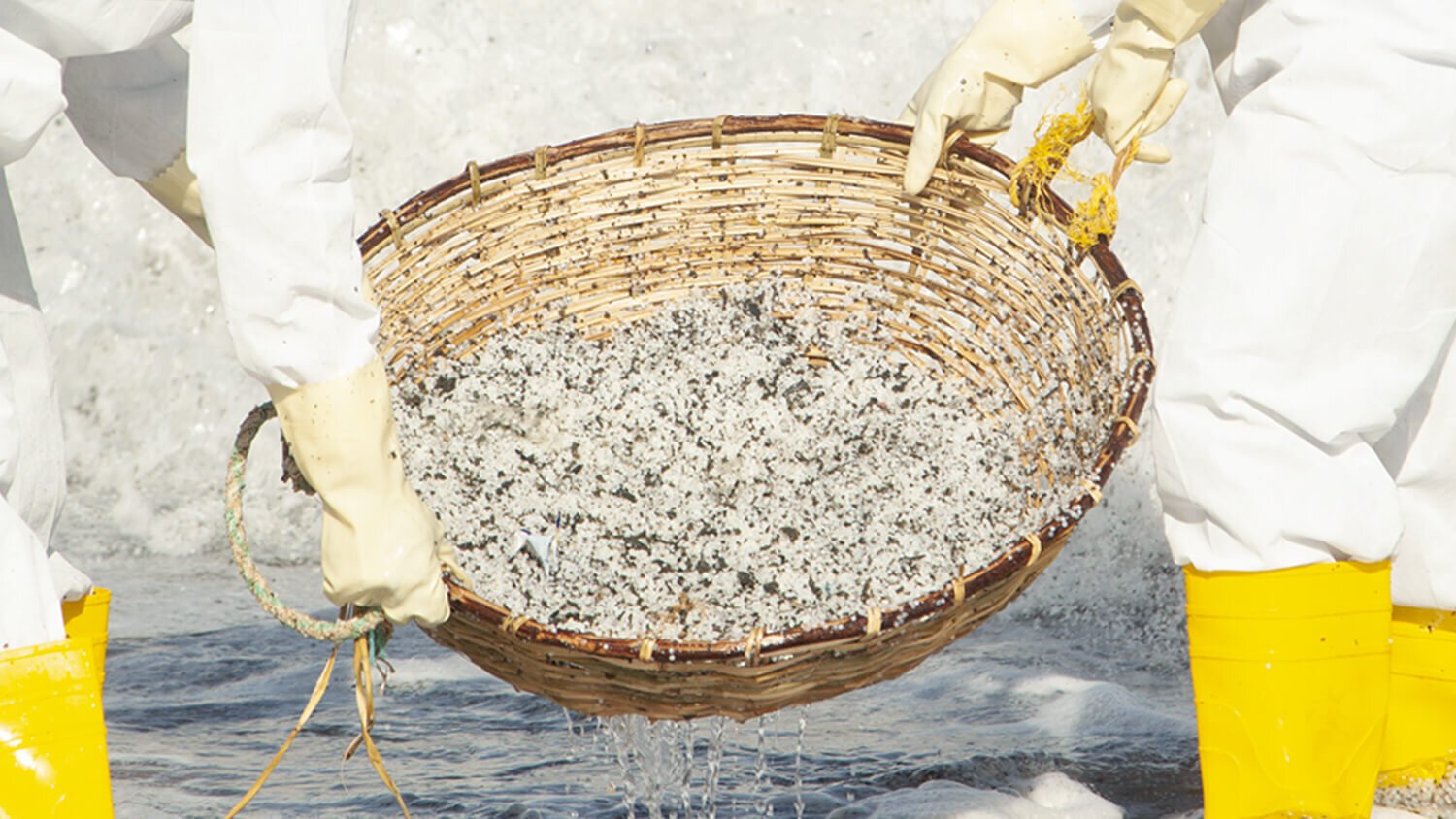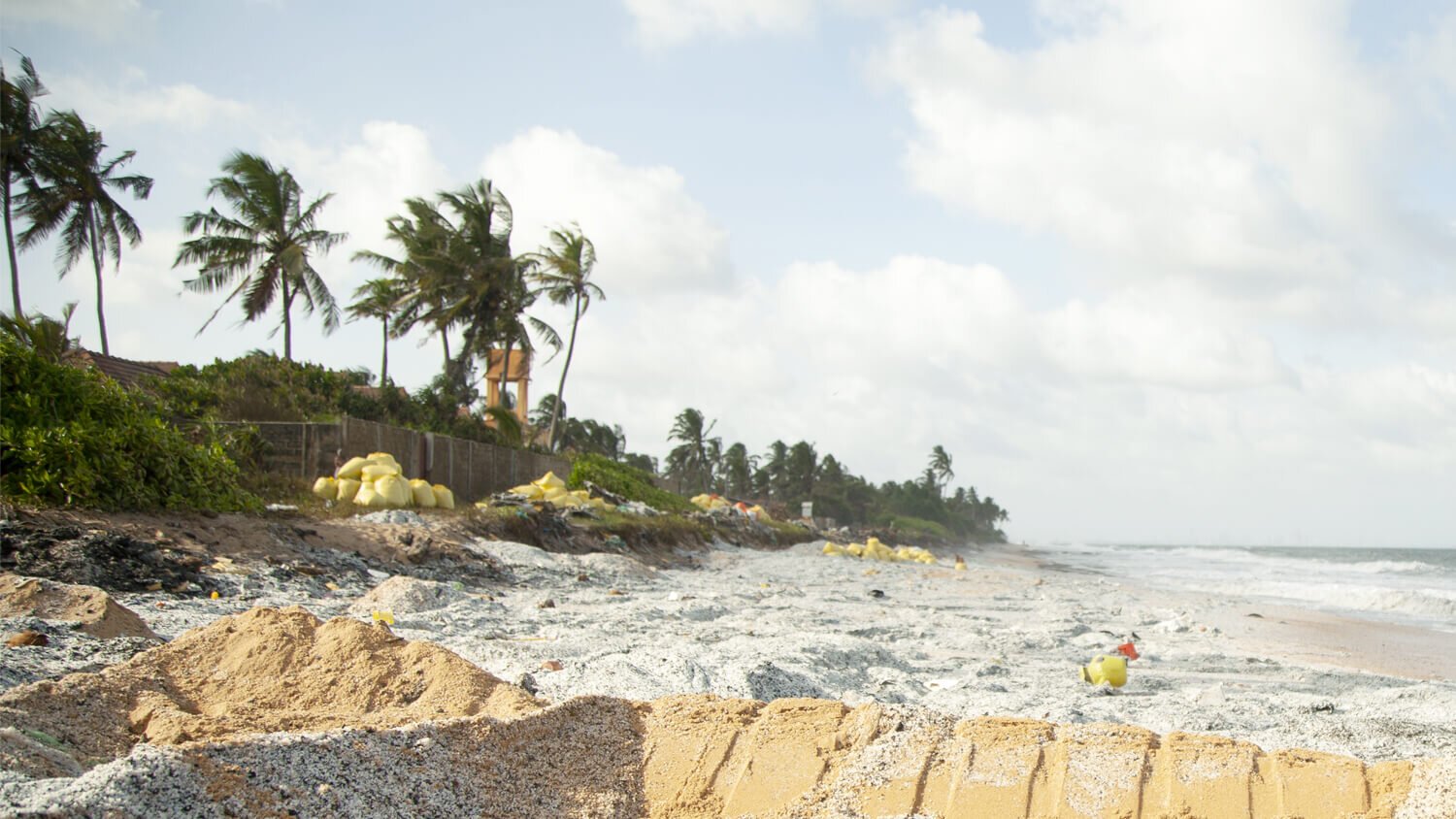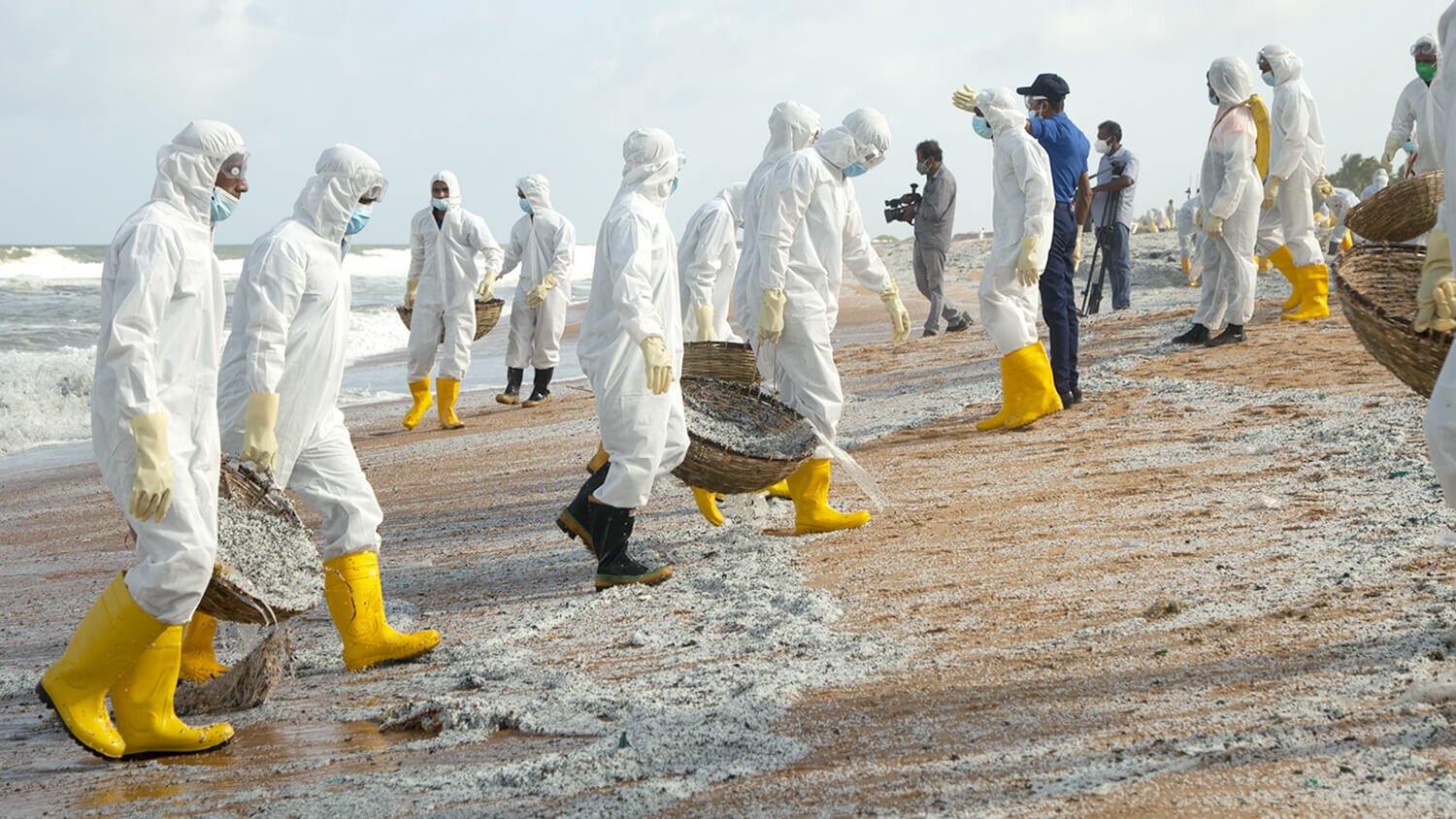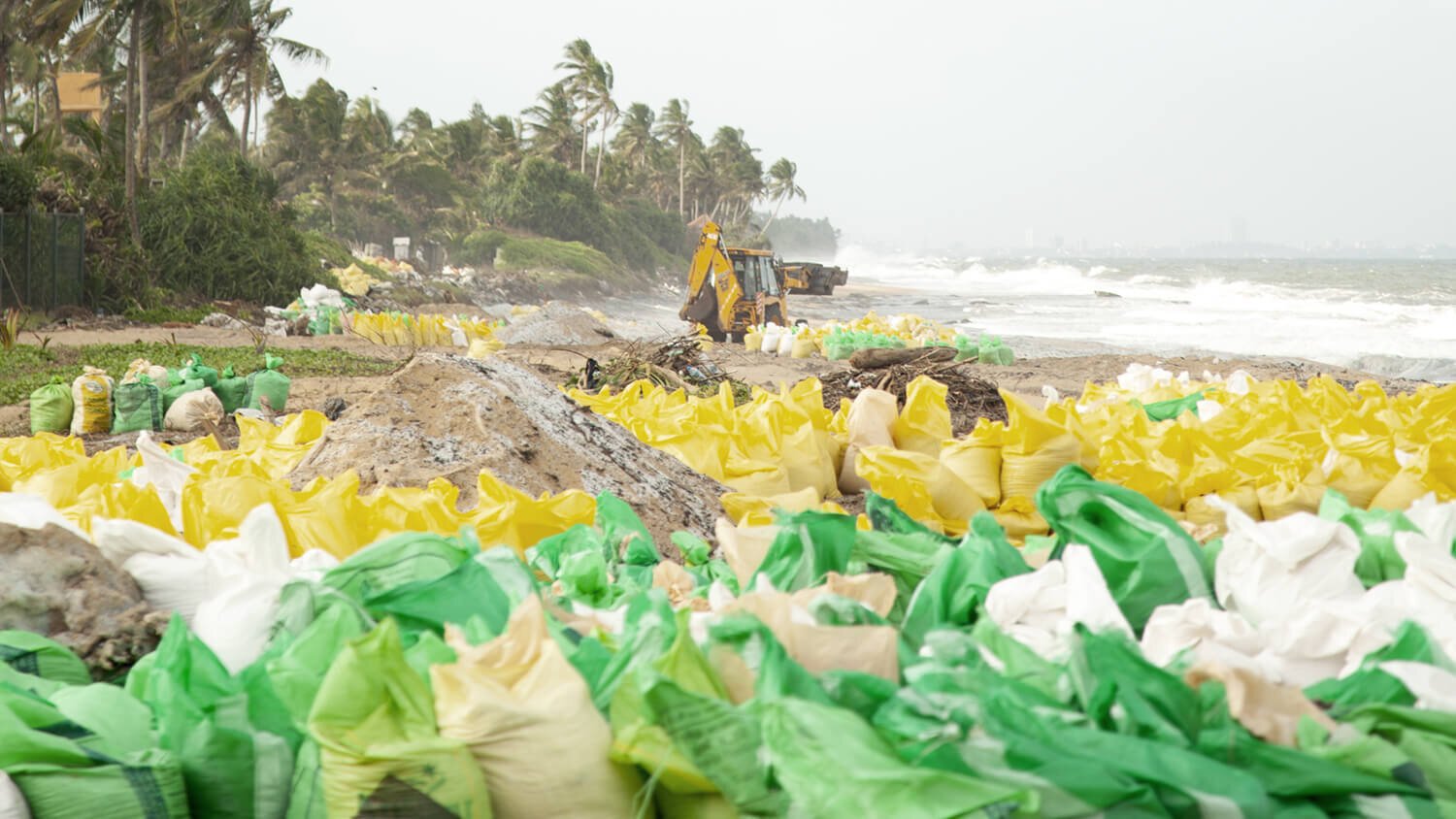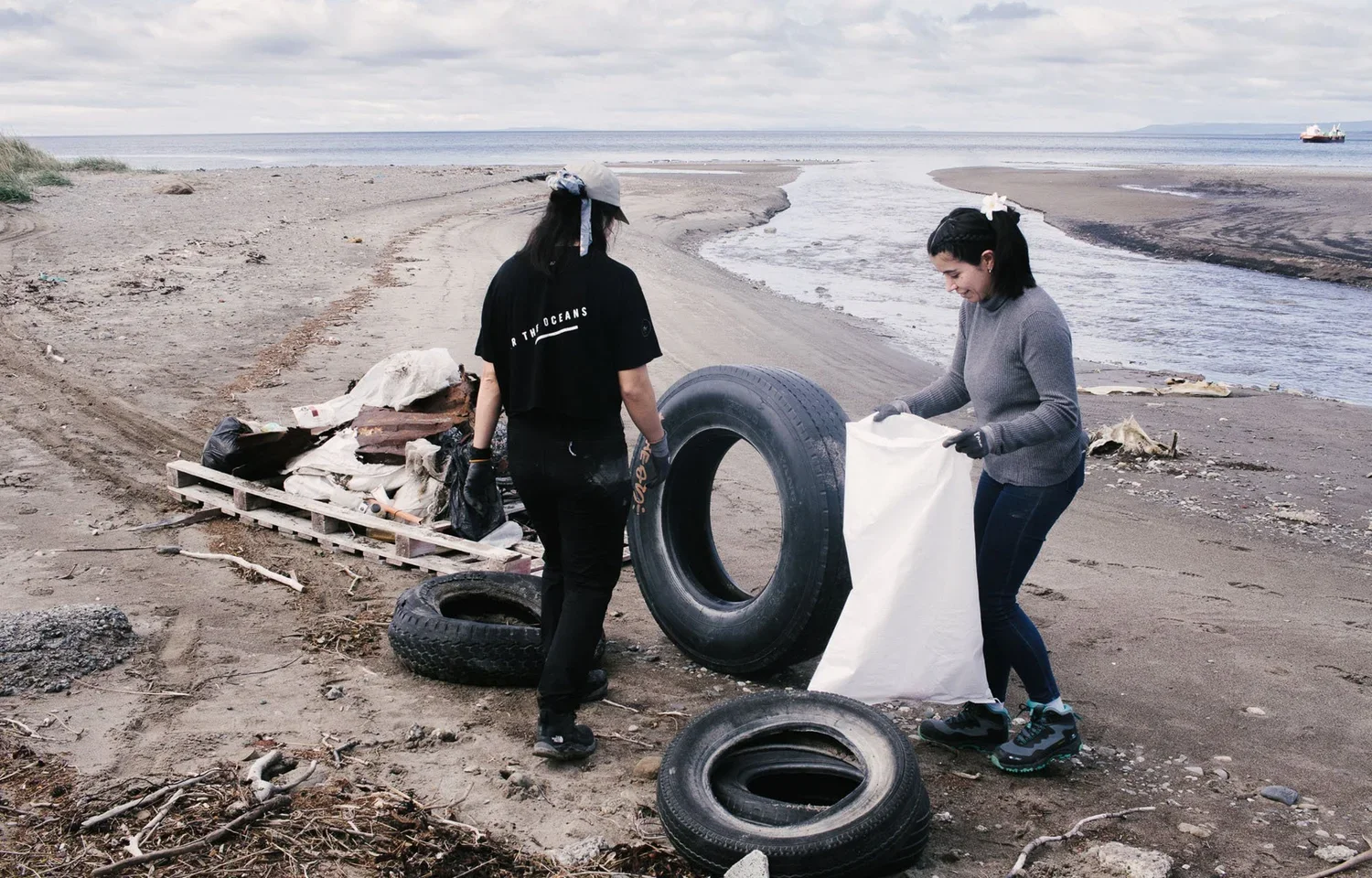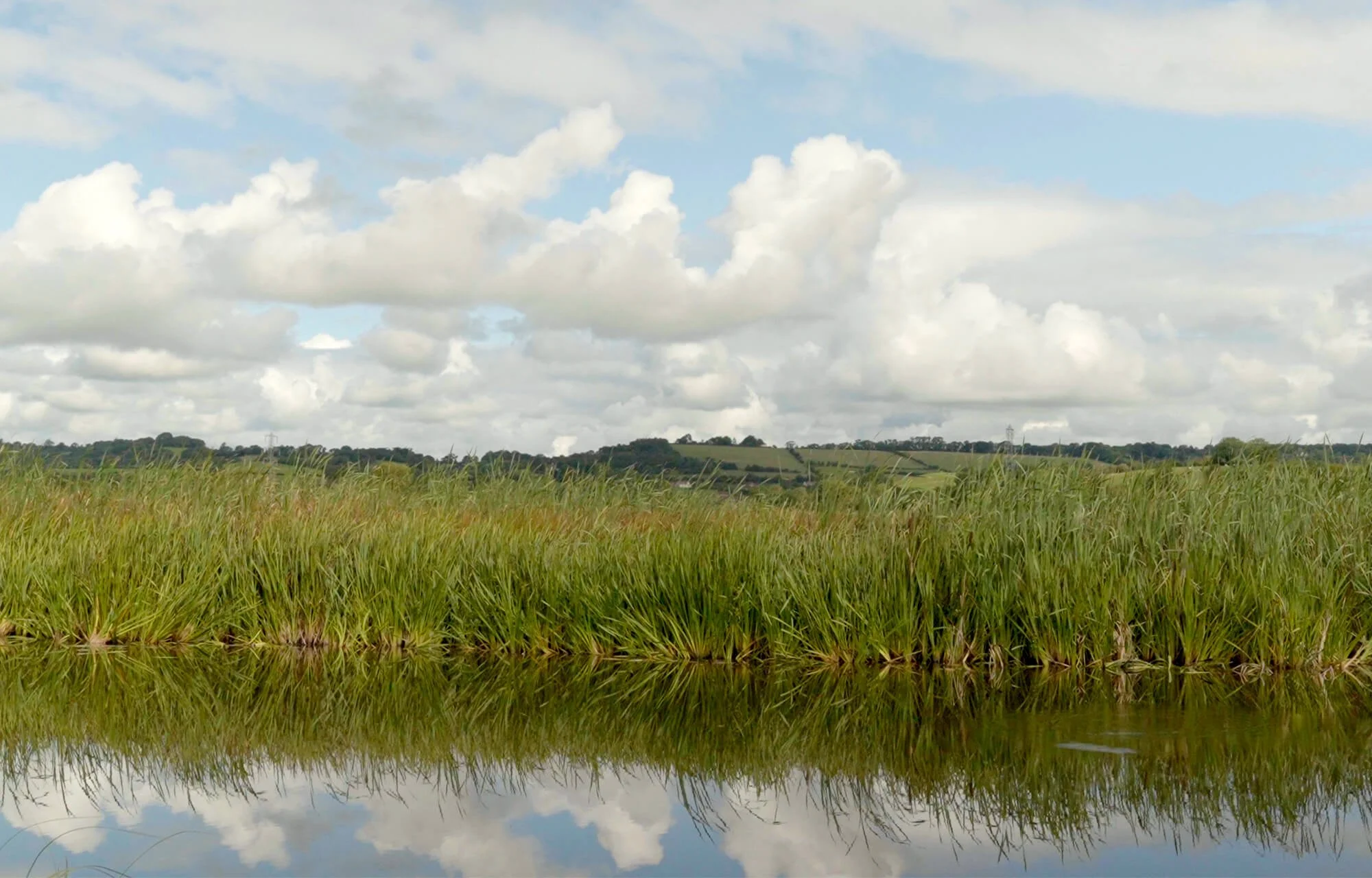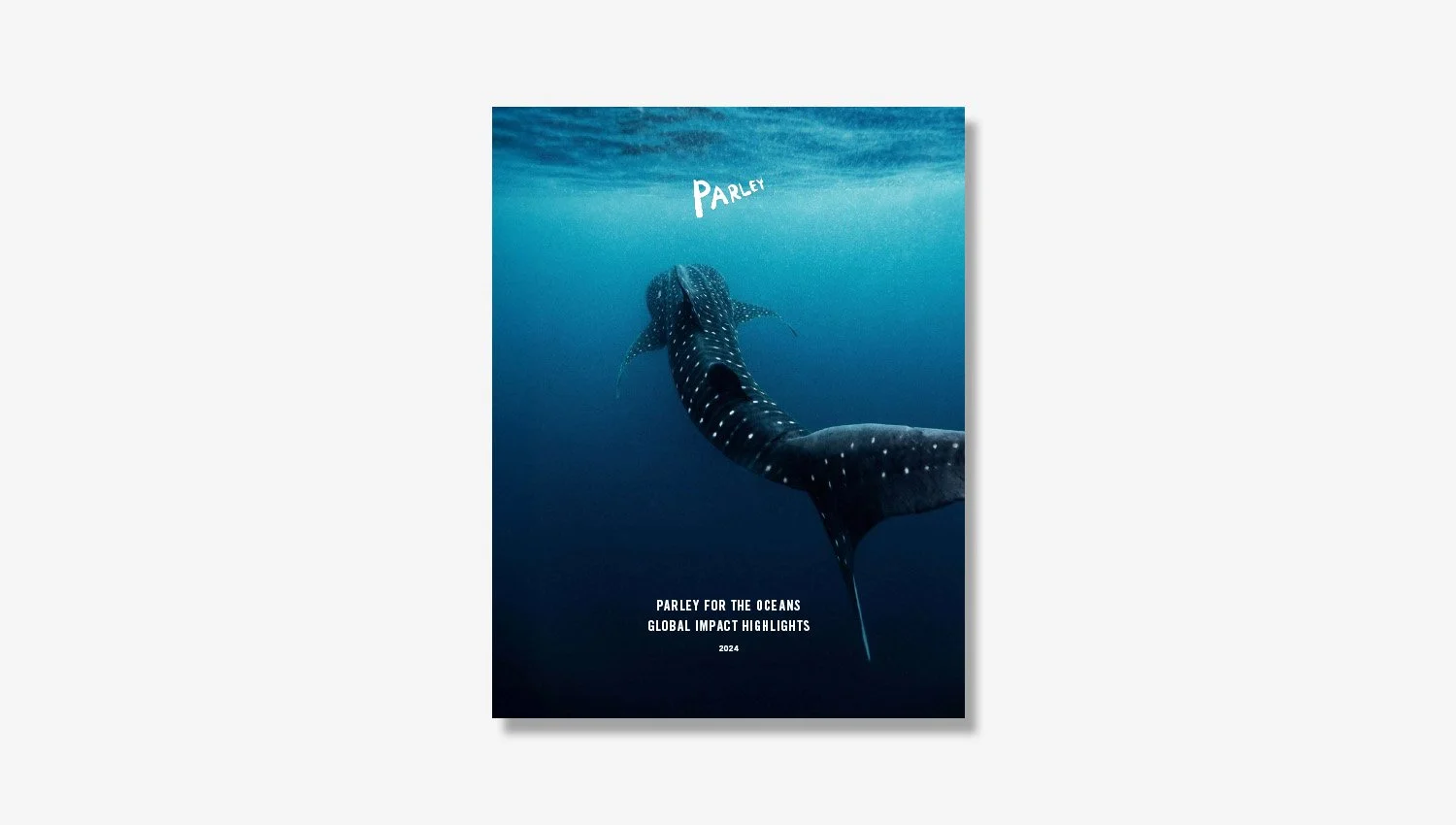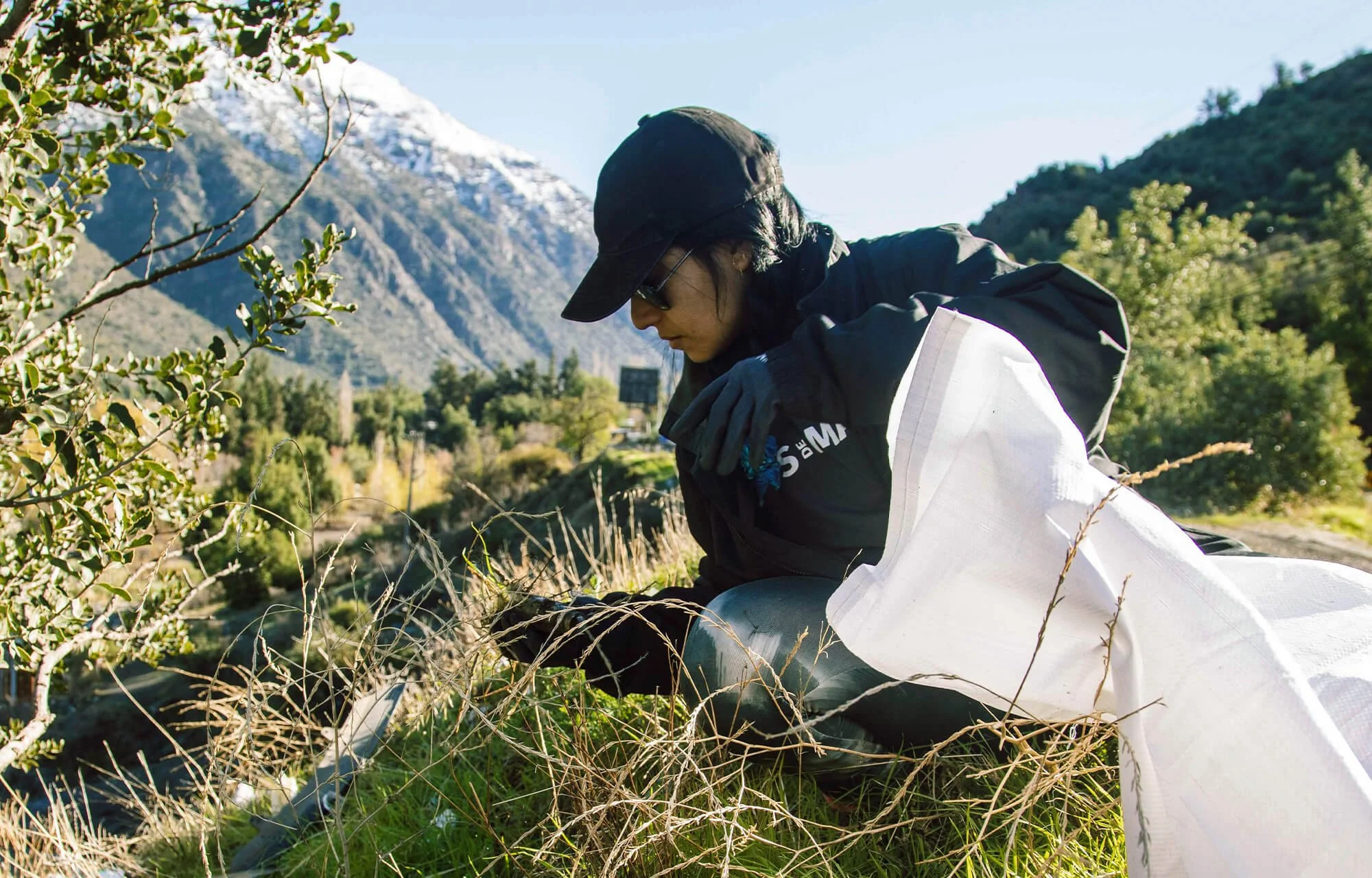Ocean Emergency: Sri Lanka
Sri Lanka is currently facing the worst marine ecological disaster in its history: a stricken cargo ship leaking untold quantities of microplastics and toxic chemicals
This image courtesy of the Sri Lankan Air Force. All other images by Kelum Dinusha for Parley Sri Lanka.
On 20 May, the Singapore-registered MV X-Press Pearl caught fire off the Sri Lankan coast. The cargo ship was carrying 25 tonnes of nitric acid, sodium hydroxide and other dangerous chemicals – along with at least 28 containers of raw materials used to make plastic bags and fuel oil in its tanks. Over the past few days, plastic pellets and toxic chemicals have begun washing ashore in Sri Lanka, coating the country’s coastline in a nightmare mixture of microplastics and dangerous chemicals.
The island nation is facing the worst marine ecological disaster in its history, and there’s very little concerned citizens or our country team can do – yet. The Sri Lankan government and military are responding in full hazmat protective suits, and residents have been warned to stay away from the highly toxic debris. Parley’s goal currently is to support the cleanup effort by raising awareness and funds for what promises to be a long, drawn out remediation effort.
The country’s Marine Environment Protection Authority, a key partner of Parley’s in Sri Lanka, says the spill has likely damaged coral reefs, lagoons, mangroves and other ecosystems that could take decades to recover. This recent accident is just the latest grim reminder that plastic isn’t just a problem on its own, but part of a wider system of toxic materials and fossil fuels that must be piped, shipped or flown around the world – risking leaks, spills and environmental disaster wherever they go. It’s time to replace plastic and other harmful materials – NOW.
Help us respond to the microplastic spill in Sri Lanka. 100% of all donations go towards funding cleanups and equipment along the affected coastline.
“It's heartbreaking to see the massive environmental damage caused by the burning cargo ship. Our beaches are covered with plastic pellets and charred debris and the waters are contaminated with hazardous chemicals. The impact on the coastal and marine biodiversity is likely to take a toll on economic activities such as fisheries and tourism as well.”
Irushinie Wedage — Parley Sri Lanka
Due to the COVID-19 situation and toxic chemicals involved, we are not actively looking for volunteers at this time.
—
If you would like to volunteer for future cleanups, please register on the Parley Sri Lanka page





